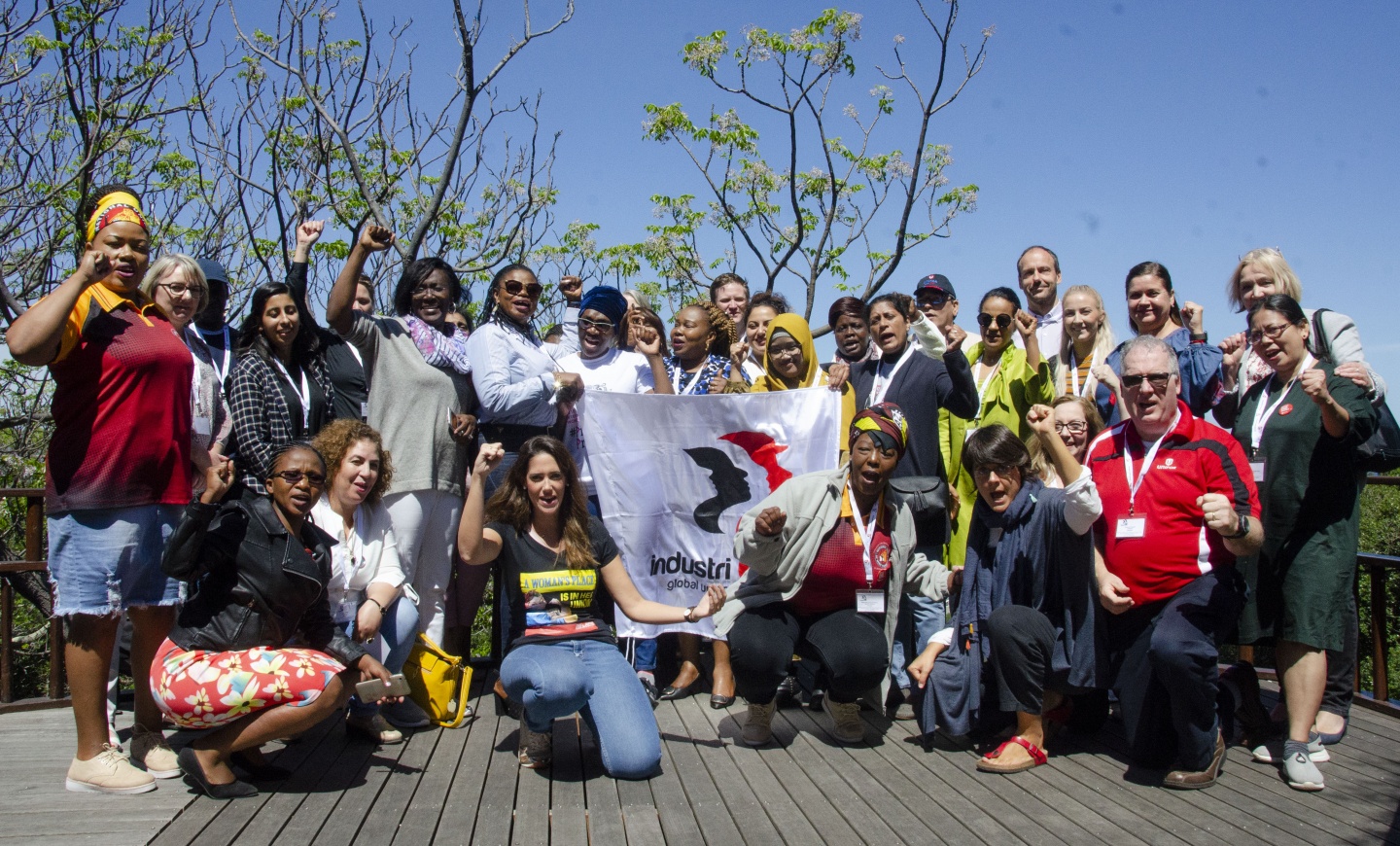19 October, 2018On 16-17 October, IndustriALL affiliates from across the world met in Cape Town, South Africa, to develop strategies for achieving gender equality in the mining, base metals, materials and energy sectors.
These sectors, which often provide skilled, well-paid and prestigious work, are dominated by men. Women working in these sectors tend to do the most menial and precarious work, with the lowest wages and status, and are often not visible in positions of authority in their unions.
Opening the meeting, IndustriALL assistant general secretary Jenny Holdcroft said,
“Gender equality is not a women’s issue, it is a core trade union issue. Just as we all campaign against precarious work and don’t expect precarious workers to organize themselves, we need to involve men in this discussion and stop treating this as an issue for women to resolve.”
The meeting addressed a number of stereotypes that are used by people – including some union leaders – to explain the low participation of women. A common myth is that that women are not interested in or capable of doing physically demanding or technical jobs. Another is that women lack the emotional stability to be effective trade union leaders, or should be at home looking after the children.
There are significant barriers to women entering these sectors. These include sexual harassment and gender-based violence, which is often not taken seriously, and treated as part of workplace culture.
Companies fail to make accommodation, such as secure changing and bathroom facilities, and personal protective equipment does not fit. Women are expected to take care of children and household duties as well as their jobs. Young women see very few positive role models in these sectors, and the education system directs them to caring and service work.
When women do work in these sectors, male colleagues sometimes perceive them as weak and are overly protective, denying them the opportunity to be challenged and develop their skills.
The meetings heard from women who worked as highly skilled mechanics, did maintenance work at height at a cement plant, drove heavy mining trucks and trains, or operated machinery at utilities companies. Many had to prove themselves in ways that were not expected of their male colleagues.
Several male delegates to the meeting made a powerful case for how their women colleagues, at work and in the union, did their jobs as well as or better than the men. Gender equality benefits men as well as women, because it disrupts power structures that only serve a few dominant men.
The delegates came up with a series of recommendations, which will be presented at the IndustriALL Executive Committee meeting in Mexico in November. These focus on moving gender equality out of women’s committees and making it a permanent agenda item in sector and network meetings. Organizational structures should develop and be mandated to report on a plan for increasing women’s participation, and unions should use global framework agreements to influence corporate behaviour.


